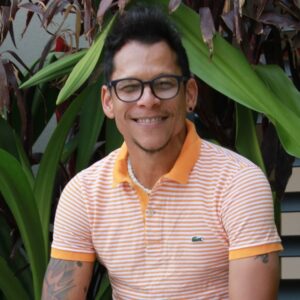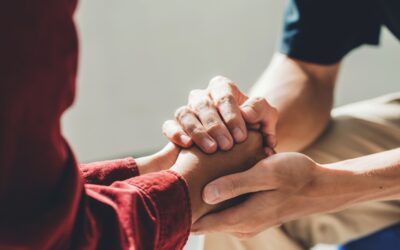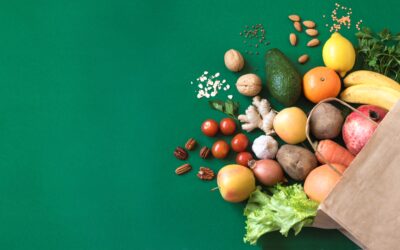Turning 40 is something we can’t avoid! There are a lot of changes happening in a man’s body at this point, particularly with hormones.
Unfortunately, getting old is associated with changes in the HPG (hypothalamic-pituitary-gonadal) axis which links to andropause/male menopause [1]. This means is that the body is not producing enough testosterone secretion and spermatogenesis.
Males start to notice a testosterone drop between the ages of 40 and 55 (varies from man to man). Around 70% of males have a complaint regarding various symptoms such as low libido, irritability, changing moods, night sweats, broken sleep, lack of concentration, depression, muscle mass loss, and palpitations [2,3]. Some males do not notice low testosterone, and for some, these similar complaints could be a result of a different reason such as medication, a health condition or, obesity.
Science has found that to slow down the aging process you need to look after yourself. You probably have asked the question how do we keep our bodies young or at least how to slow down this natural process in the body?
If you are struggling with:
- An addiction to processed food
- High carbs or a high sugar intake
- Alcohol drinking
- Smoking
- Sedentary lifestyle
- Obesity
- Physical stress
- Sleep deprivation
- Chronic disease
I can hear you…
After men reach their 40s, some realise that hormones start to fall which can lead to some mental health problems including a link to depression.
Mental health is something that we need to be aware of. Some men do not talk about body changes, and for some it can be embarrassing talking about hair loss or low libido. It can also be difficult to open up, but believe me it is worth trying!
Some strategies to consider to improve your health and slow down the aging process include;
1. Having a healthy lifestyle with a holistic approach. I strongly believe this is the way to go, we need to empower ourselves by taking control and put into place mindfulness with breathing exercises and yoga, good sleep hygiene and a balanced diet with whole food eating. As the prevalence of diabetes rises, we have to try to limit excess carbs and processed foods even more so as we age.
Consuming a diet with a variety of fruit and veggies, drinking plenty of water (1.5 – 2L) and eating good quality protein(s) can help reduce blood sugar levels therefore, reducing the risk of developing diabetes.
A Good protein source with each meal can help control hormones and build muscle mass. This in turn, reduces free radical synthesis (aka keep you feeling and looking youger) – so be sure to add a protein with each meal!
2. Do not be afraid of the sun! 15-20 minutes of sun exposure each day is recommended for optimum vitamin D.
3. Physical activity is important to maintain as we age. It can help slow down the process of aging, especially resistance-based exercises that are known to increase muscles mass, build strength and reduce body fat. Being active can improve testosterone levels. It is recommended to combine resistance and aerobic exercise 3 times per week for no longer than 45 minutes per session [3]. Try low impact exercise such as swimming, aqua aerobic, bicycle riding, walking.
It is also important to reduce oxidative stress in the body and regulate cholesterol levels giving the body the right nutrients that our bodies need to slow down andropause.
Look for foods high in the following nutrients:
Zinc for testosterone synthesis:
Oysters, red meats, chicken, veal, lamb, duck, turkey Brazil nuts, almond, cashew, chestnuts, peanuts, pecan, pine, walnuts tomatoes – sundried, eggs, tahini, sesame seeds, sunflower seeds, garlic, green peas, parsley – fresh, basil – fresh, Spinach, Mushroom.
Vitamin C is a potent antioxidant:
Blackcurrant juice, guava, banana, blackberry, red chilli peppers, red peppers, parsley, watercress, Cabbage, strawberries, papaya, rockmelon, citrus fruits, broccoli, brussels sprouts, green peppers cauliflower, Kohlrabi snow peas.
Vitamin A for the production of oestrogen and androgens in the testes:
Fish liver oil- halibut, cod, liver, Veal, lamb, beef, chicken, egg yolk, butter, carrots, tomatoes, rockmelon, apricots, mangos, pumpkin, peaches, spinach, sweet potato, basil, chives, parsley, chilli.
Vitamin E is a potent antioxidant:
Sesame seeds, tahini, sunflower oil, olive oil, soy, egg yolk, almonds, sunflower seeds, Olives, tuna, hazelnuts, avocado, mango, pistachios, kiwi, broccoli.
Selenium for testosterone synthesis and reduces andropause and is a potent antioxidant:
Brazil nuts, mushrooms, egg yolk, red meats, oat bran, oats, wheat bran, wheat germ (fresh), mustard powder, sesame seeds, tahini, fish – all types.
Essential fatty acids help with the modulation of steroid hormones synthesis:
Omega 6: Oils: Safflower, Corn, Sunflower, Soybean.
Sesame seeds, Pine nuts, Brazil nuts, tahini, pumpkin seeds, pecans, almond, hazelnuts.
Omega 3: Salmon, sardines, oysters, squid, mussels, scallops, crab, baby octopus, snapper, prawns, barramundi, flaxseeds, walnuts, chia seeds, soybean, pumpkin seeds, tofu, mushrooms, spinach.
CoQ10 a potent antioxidant for energy production helps the cardiovascular system and lower androgen status:
Meat, chicken, herring marinated, trout, peanuts, sesame seeds, pistachio nuts, broccoli, cauliflower, orange, egg.
Be happy and comfortable with your age and do not be afraid to talk about andropause. Remember this happens to every single man, and it is inevitable at some point in our lives.

Jimmy Salcedo Ramos
Nutritionist (QLD, Brisbane)
Bachelor of Health Science in Nutritional Medicine
References:
- Martelli M, Zingaretti L, Salvio G, Bracci M, Santarelli L. Influence of Work on Andropause and Menopause: A Systematic Review. Int J Environ Res Public Health. 2021 Sep 25;18(19):10074. doi: 10.3390/ijerph181910074. PMID: 34639376; PMCID: PMC8508409.
- Abootalebi, Maliheh; Vizeshfar, Fatemeh; Heydari, Naval; Azizi, Farnoosh (2019). Effect of education about andropause health on level of the knowledge and attitude of men referring to the education and training retirement center of Shiraz. The Aging Male, (), 1–6. doi:10.1080/13685538.2019.1696766
- Vieira, Melissa de Carvalho Souza; Leitão, Alice Erwig; Vieira, Guilherme; Moratelli, Jéssica; Boing, Leonessa; Seemann, Taysi; Guimarães, Adriana Coutinho de Azevedo (2018). Concurrent training protocol for men with androgen deficiency in the aging male: a randomized clinical trial. The Aging Male, (), 1–9. doi:10.1080/13685538.2018.1454421
- Hechtman,L. (2014). Clinical Naturopathic Medicine. Elsevier, Edition 1: revised 2014





0 Comments